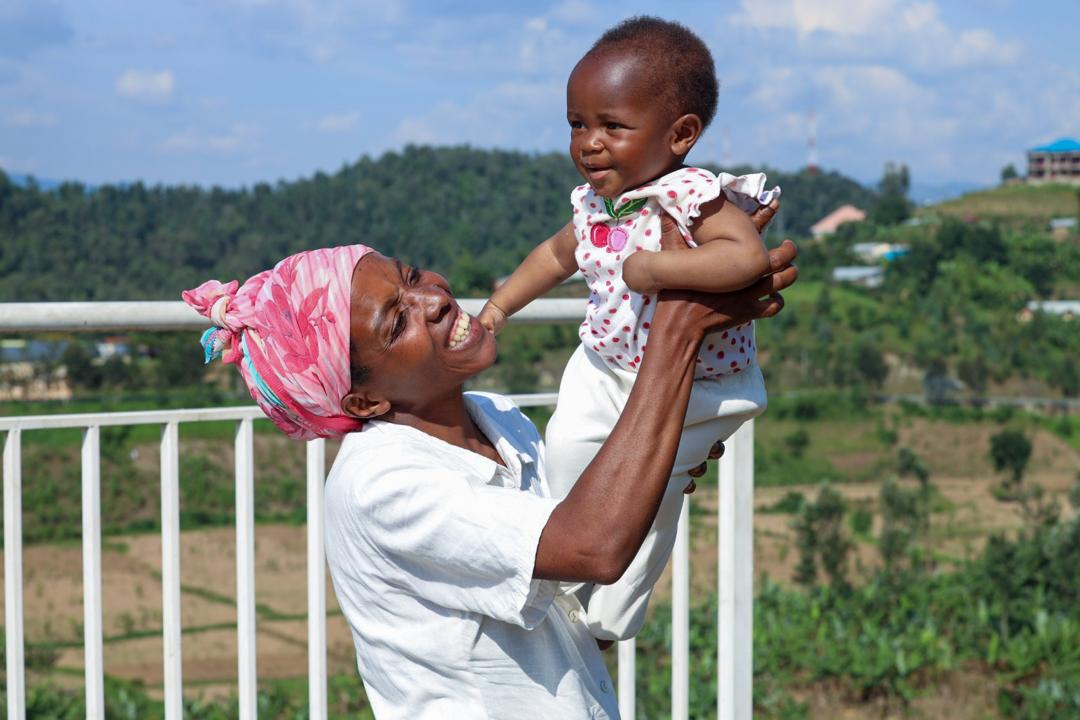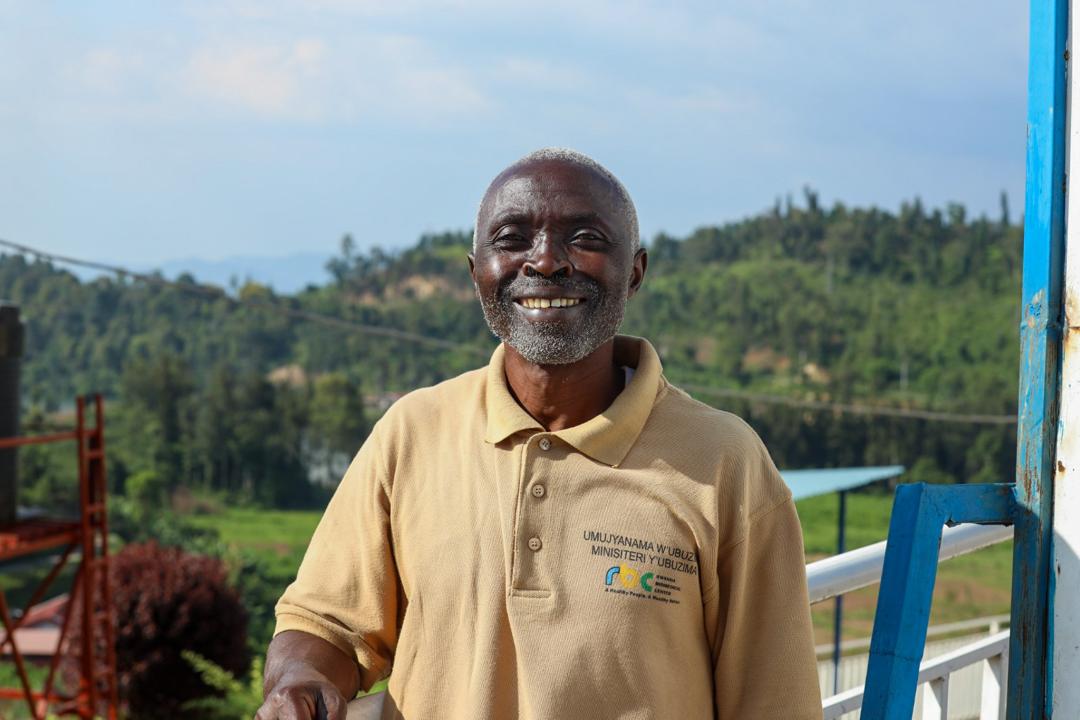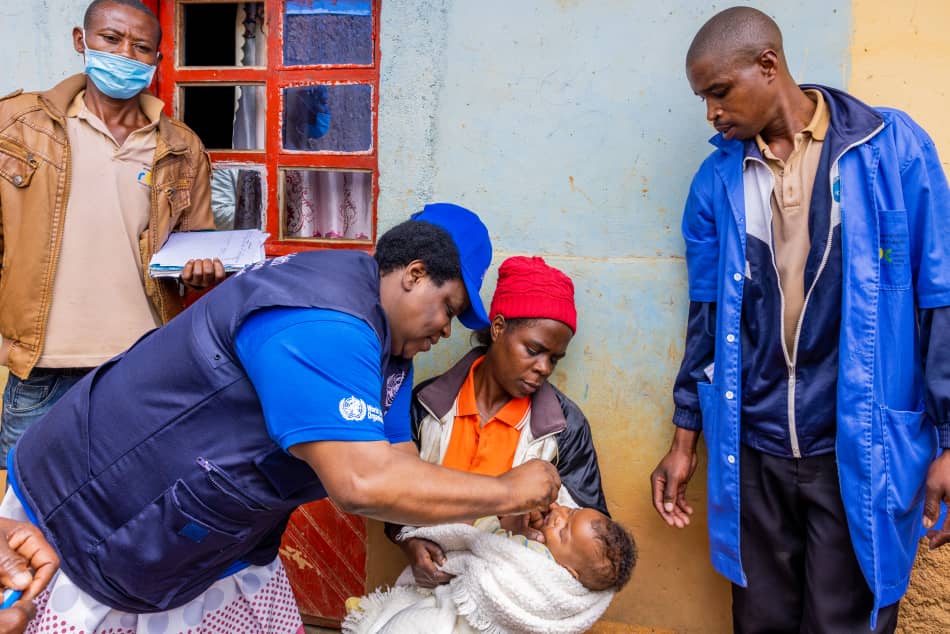Securing a healthier future: Rwanda's vaccination efforts protect children from polio

Rwanda – When community health workers announced a mass polio vaccination campaign in Karongi, on the eastern shores of Lake Kivu last year, mother Marie Claire Umutoniwase knew this was her opportunity to protect the health of her now nine-month-old daughter Ornella.
Umutoniwase had learned from community health workers the devastating effects of polio and says, "I feel at peace knowing my daughter is vaccinated.”
Following the declaration of a circulating variant poliovirus type 2 (cVDPV2) outbreak in Rwanda´s neighbouring countries, including Burundi, the Democratic Republic of the Congo (DRC) and Tanzania, Rwanda embarked on an immunization campaign to protect every one of the country’s children from the virus, and its consequences.
Although the last polio case in Rwanda was reported three decades ago, the vaccination campaign aimed to reach all children under the age of seven regardless of their previous immunization status.
In close collaboration with the World Health Organization (WHO) and UNICEF, Rwanda’s Health Ministry conducted two countrywide immunization rounds with 2 754 831 vaccines administered between 24 and 28 July 2023 and a further 2 915 598 between 11 and 15 September 2023.
Vaccinators went house to house to ensure all eligible children were reached, with efforts complemented by pop-up sites at markets, parks, health facilities and schools. The two rounds reached 106% and 99.7% of their respective targets, while 44 of 46 district hospitals were deemed to have met the WHO criteria for a high-quality polio vaccination campaign.
“Before the campaign, people mostly knew little more than the name of the disease. We went door to door to educate everyone about polio, about the importance of accepting the vaccine and the potential consequences for children who contracted the virus,” says Martin Mbasabagukizwa, a community health worker who actively participated in the campaign.

Overall, 14 424 trained community health workers were involved in the campaign, with supportive supervision by teams from health centres and district hospitals. WHO worked with the Ministry of Health to train national and district supervisors, who then cascaded their knowledge to health centre teams, ultimately equipping and supporting community health workers to administer the vaccine.
WHO employed an innovative digital payment platform to ensure timely payments to the 17 865 personnel involved in implementing and evaluating the campaign.
“Community health workers played a key role in the campaign, administering vaccines in households, tracking children who had missed a vaccine and following up on any adverse events following immunization,” says Hassan Sibomana, Director of the Vaccine Programmes Unit at Rwanda Biomedical Centre.
Emphasizing the broad range of players necessary to make any vaccination campaign a success, he adds: “The successful polio vaccination campaign was the fruit of good collaboration between all actors.”
At the request of Ministry of Health, WHO, in collaboration with the Global Polio Eradication Initiative, deployed a team of local and international experts to the country before, during and after the campaign to provide technical support to the Rwanda Biomedical Centre in the planning and coordination for the campaign. WHO also provided technical expertise to verify the use of the polio vaccine, working with the Rwanda Food and Drugs Authority.
Dr Marie Rosette Nahimana, WHO epidemiologist and Expanded Programme on Immunization team leader, says “Rwanda's urgent and successful vaccination campaign reflects a proactive approach to preventing the spread of polio and protecting the well-being of the nation's children. This comprehensive strategy, with its focus on community education alongside vaccination efforts, exemplifies best practices in public health campaigns,” she adds.
